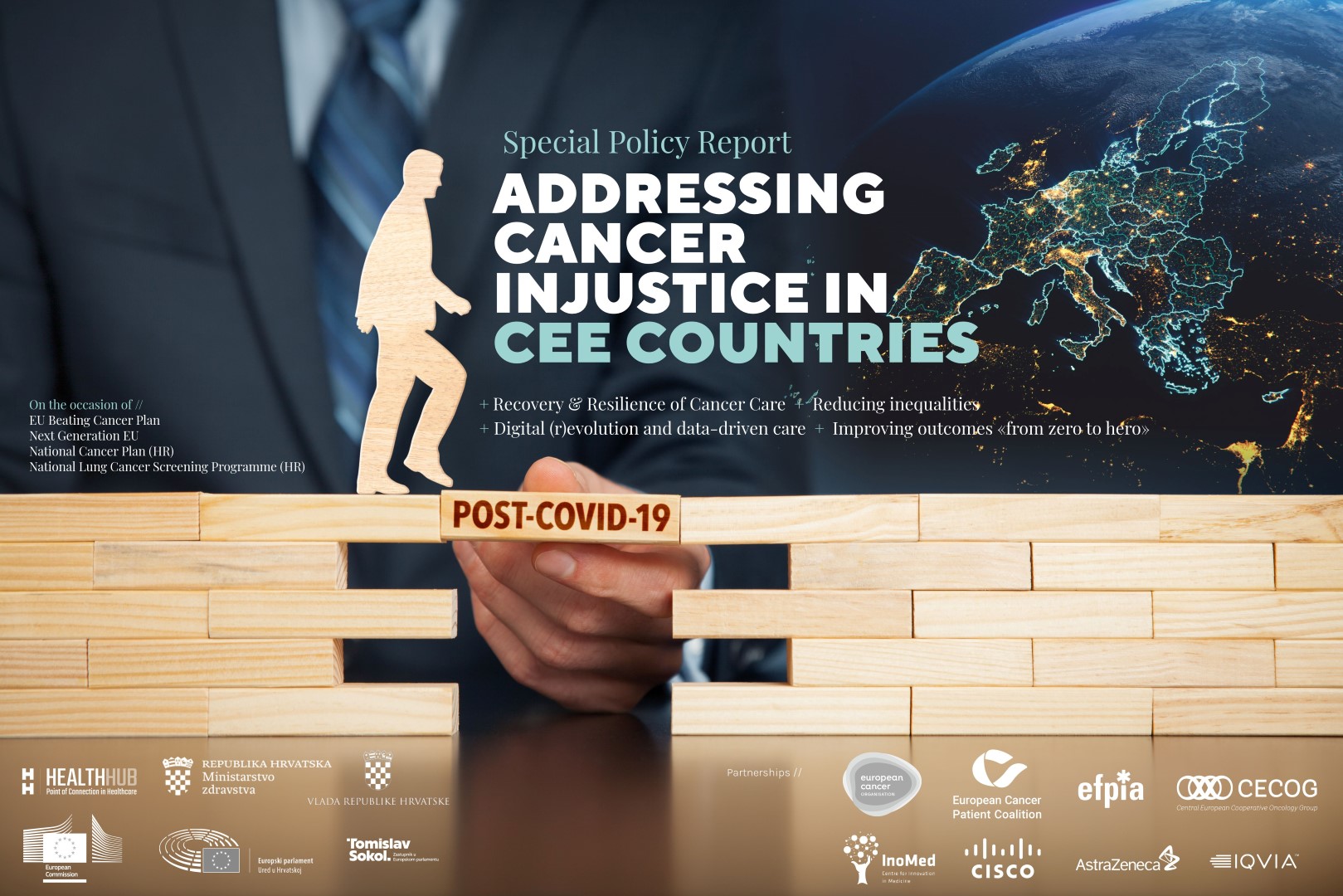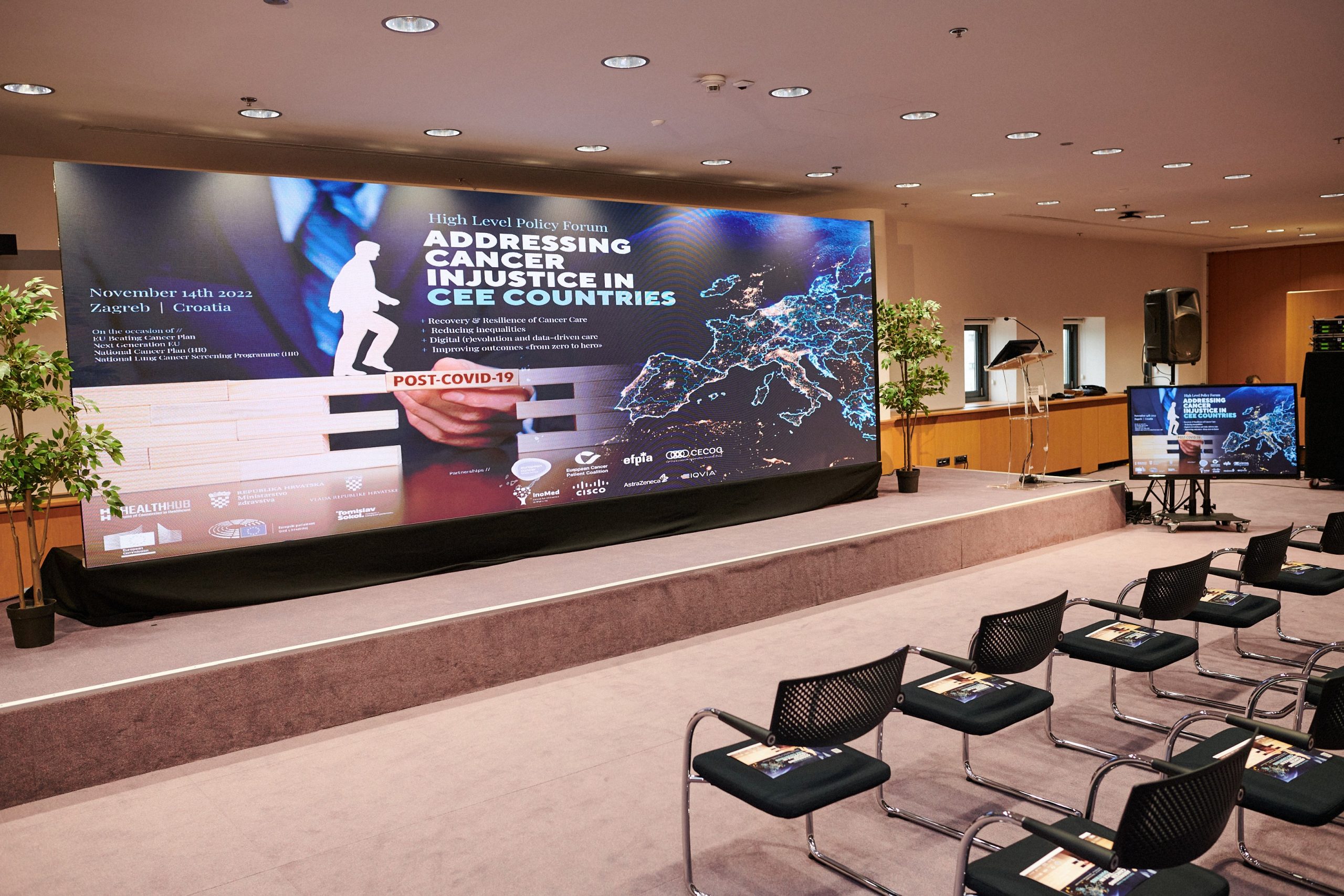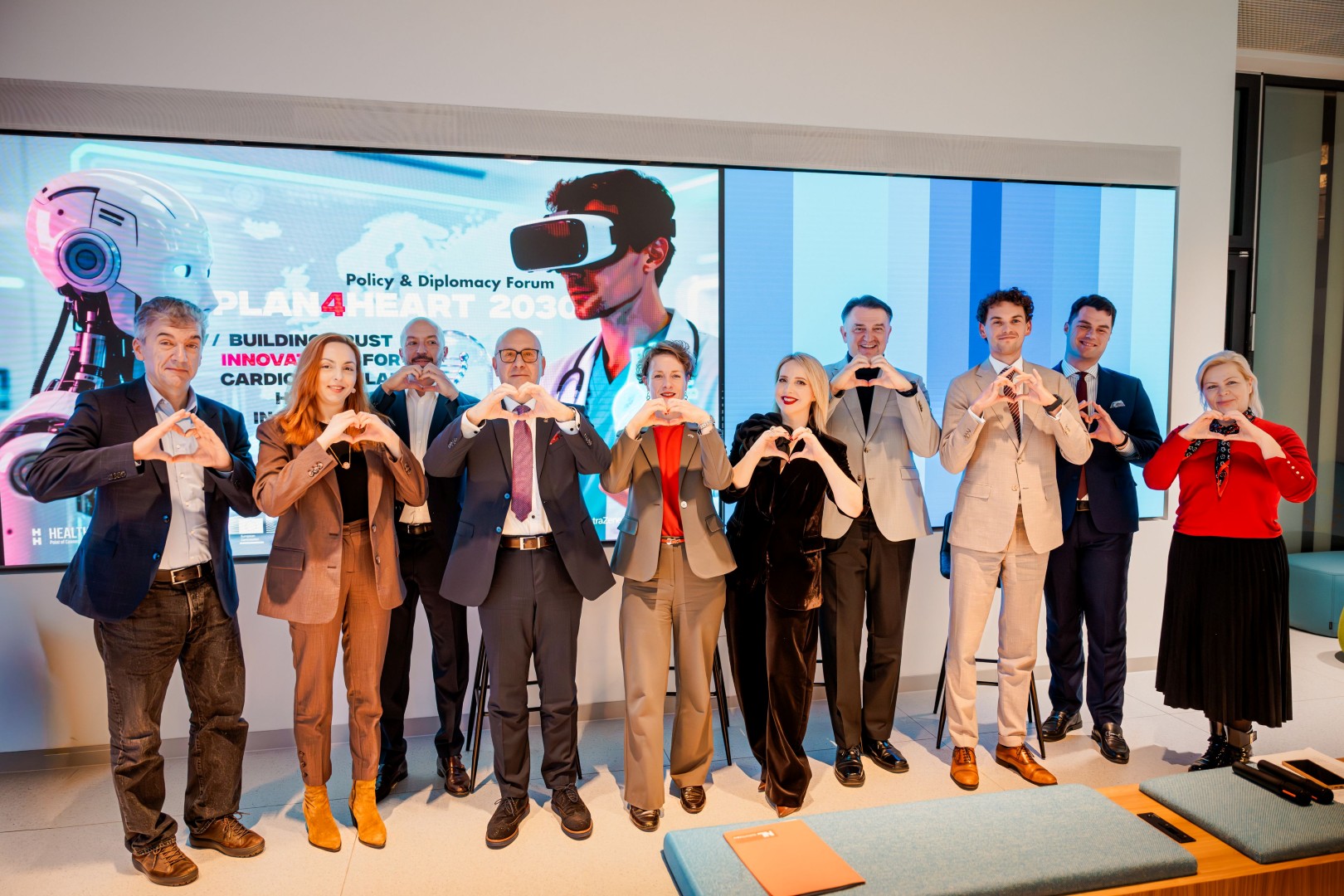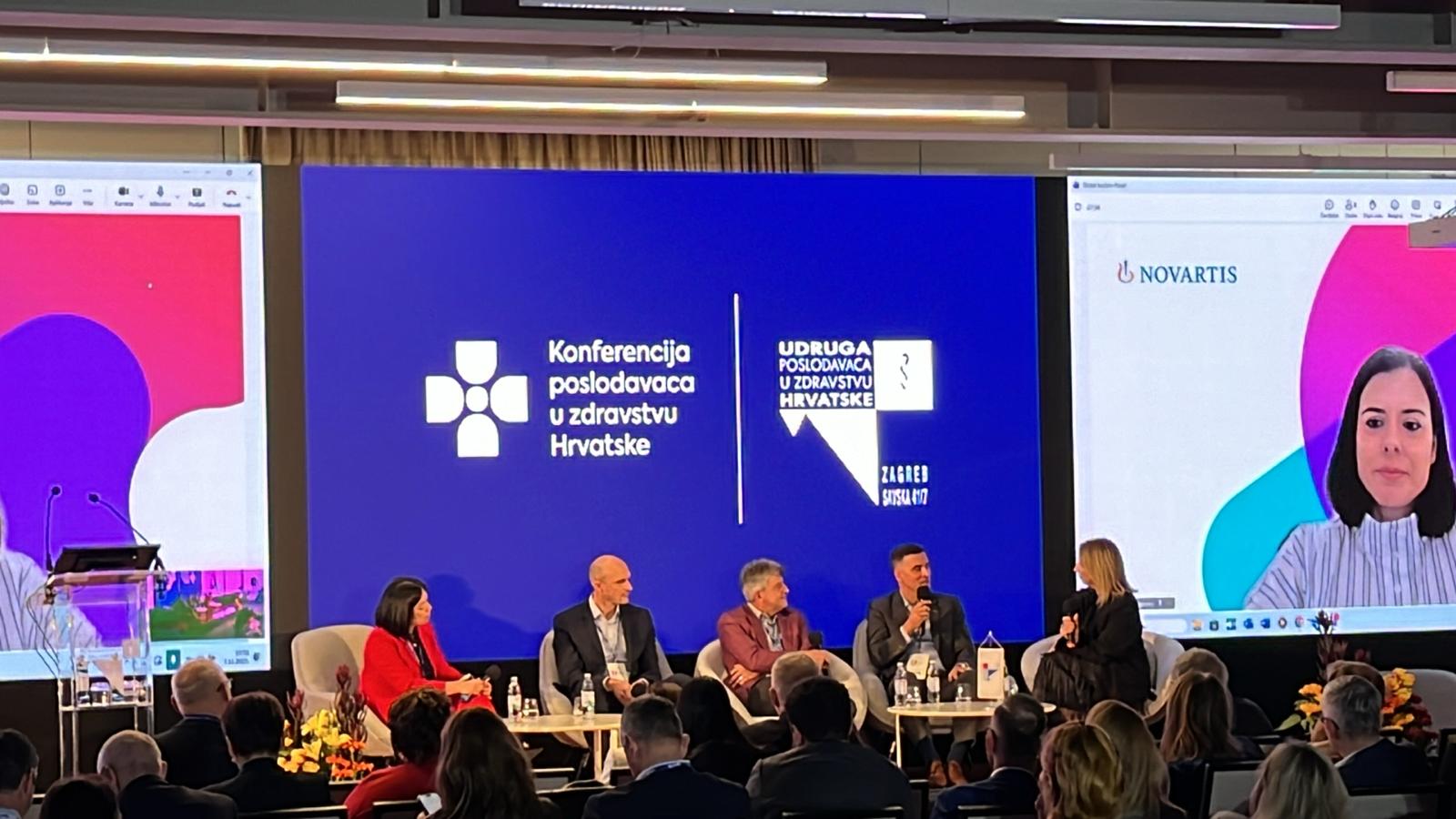Croatian Ministry of Health and Health Hub gathered European leaders in oncology health policies – It is important to ensure equality and fairness in oncology care regardless of where you live in the EU!
he European Cancer Patient Coalition (ECPC) pointed out the inequalities in the early detection of cancer across Europe, giving the example of how five-year survival after oncological treatment in Eastern European countries is 52%, in contrast to Western European countries, where this percentage is 63%, so in the West, patients have almost 10% higher chances. In the CEE region, patients are waiting for some innovative therapies more than 1000 days compared to western EU countries, national cancer screening programs are not efficient as they could be with poor response of citizenzs, and mortality for several types of cancer is higher in eastern EU countries.
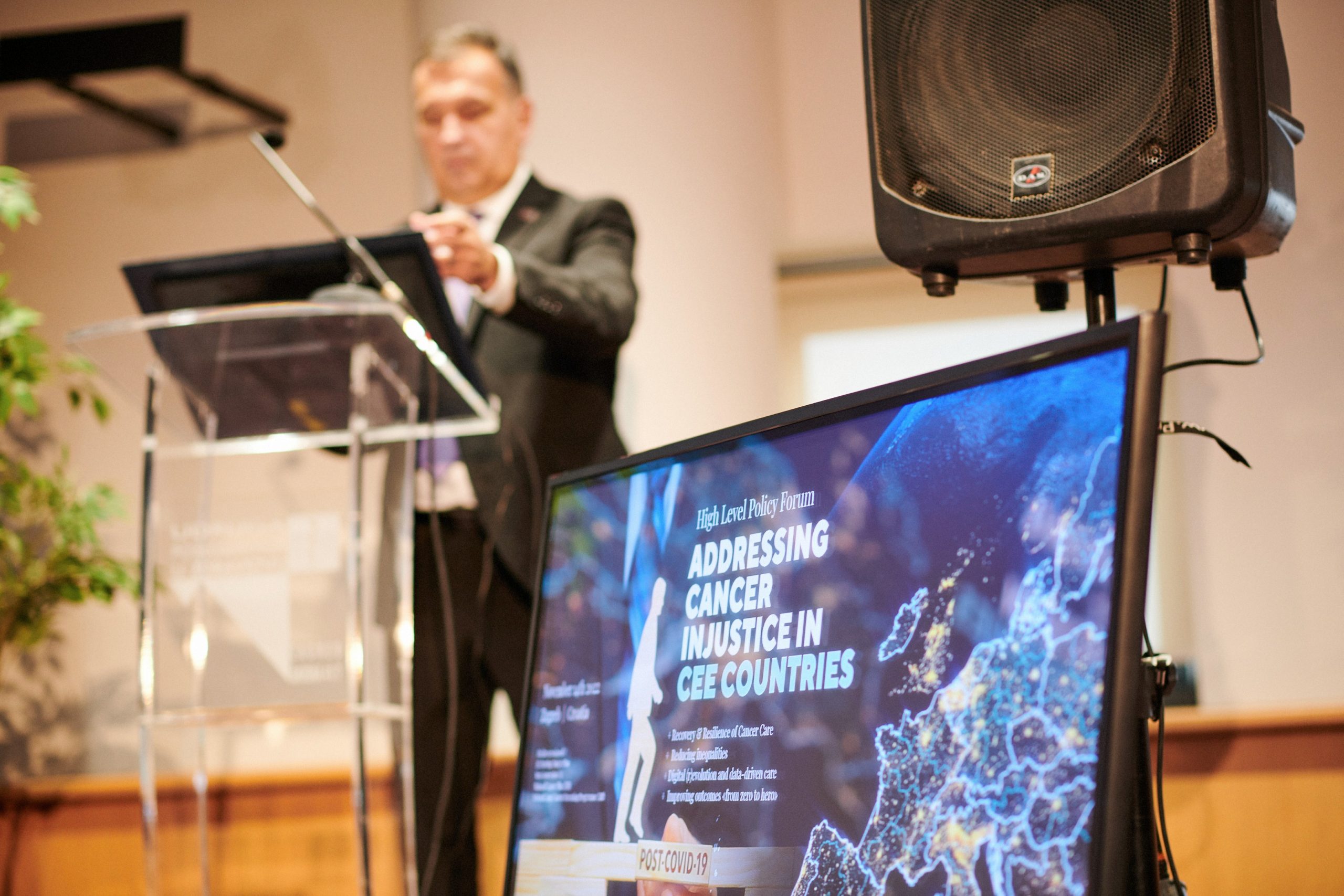
Numerous indicators clearly indicate large differences in cancer prevention and oncological care between Member States, but also within them. These inequalities are reflected in the availability of preventive programs, rates of early cancer detection, diagnosis, availability of innovative drugs and modern treatment methods, survival and measures to improve the quality of life of cancer patients and cancer survivors. As the President of the European Commission, Ursula von der Leyen, and the EU Commissioner for Health, Stella Kyriakides, have pointed out for many times, the European Beating Cancer Plan clearly states that these inequalities between countries are unacceptable in the European Health Union, which strives to protect everyone, and that there should not be citizents or patients of “first-class” and “second-class”…“
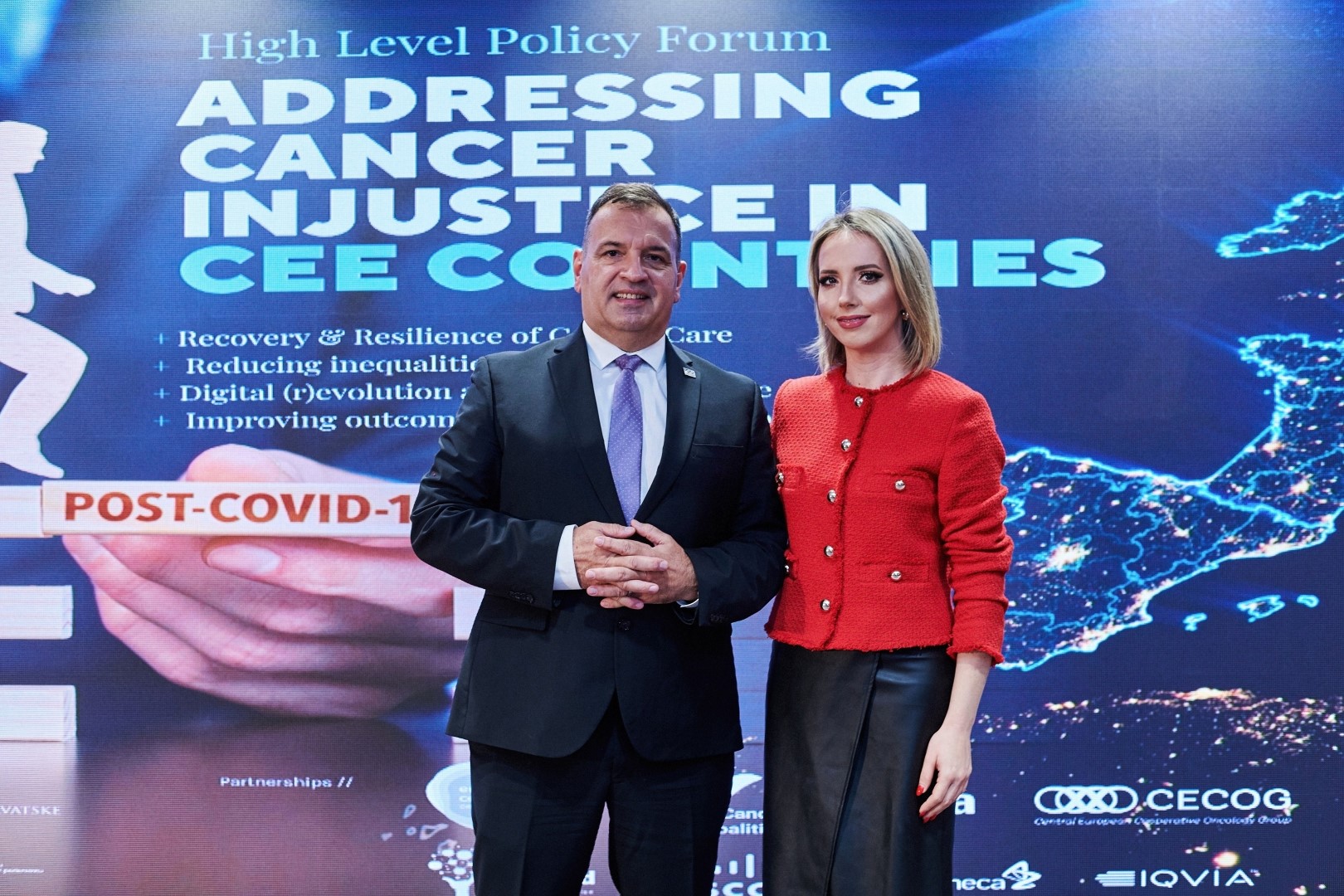
Taking into account that many countries in Central and Eastern Europe have the same problems as Croatia, Croatian Ministry of Health and Health Hub (think tank for healthcare) organized High Level Policy Forum “Addressing Cancer Injustice in CEE Countries” covering inequality and injustice in access to all levels of oncology care for Eastern compared to Western countries with better statistics and treatment outcomes, while proposing new solutions and strategies for the future, presenting best practices and the possibility of using European funds to reduce inequality in prevention and cancer treatment with an emphasis on timely access to innovations. This Forum was organized on the occasion of the European Beating Cancer Plan, the Next Generation EU program, the Croatian National Strategic Framework against Cancer and the National Lung Cancer Screening and Early Detection Program. Partners of the Forum were respectable organizations: European Cancer Organisation, European Cancer Patient Coalition, Center for Innovation in Medicine InoMed, EFPIA (European Federation of Pharmaceutical Industry and Association, Central European Collaborative Oncology Group (CECOG), with the local support of the European Commission and the European Parliament .
Croatian Minister of Health prof. Vili Beroš during welcome address pointed out: “By co-organizing this important High Level Policy Forum on the topic of inequalities and injustice in oncology care for the countries of Central and Eastern Europe, we want to send a strong message of unity and a vision of Europe that grows, connects, gathers and protects its citizens, a Europe that is assertive and open towards the neighborhood and globally. These postulates were the fundamental pillars of the historic Croatian presidency of the European Union, and that is why this conference is being organized today in the place where, in the not-so-ideal conditions of the pandemic, concrete European action to fight cancer started! And that is why we are here today, and we are proud to be a regional leader in this kind of health policy narrative, with numerous respectable partners, from the European Commission and the Parliament, to numerous nongovernmental organisations and oncology patients associations, so that we could all together contribute in a joint mission of a healthy, real, strong and digital Europe where nobody should die of cancer.”
Anita Galić, founder and CEO of Health Hub said: “Today we wanted to send three strong messages. 1) What we don’t measure, we can’t fix or do – so efficient oncology care must adapt to the data revolution and digital transformation that measures the outcomes and effectiveness of interventions, from prevention to treatment. 2) Innovations do not make sense if patients do not have access to them – in the age of revolutionary discoveries that change the course of cancer, it is unfair to have large differences “in anticipation” and access to such innovations between countries, from 100-1000 days. Every day is important for oncology patients, regardless of where they live in Europe. 3) No stakeholder in the healthcare system should be a lonely island – it is important to be a proactive stakeholder in the European health policy ecosystem through events like this; At the same time, Croatia can show a lot of good things to the EU (such as national screening programs for lung cancer based on AI), but also adopt good European examples”.
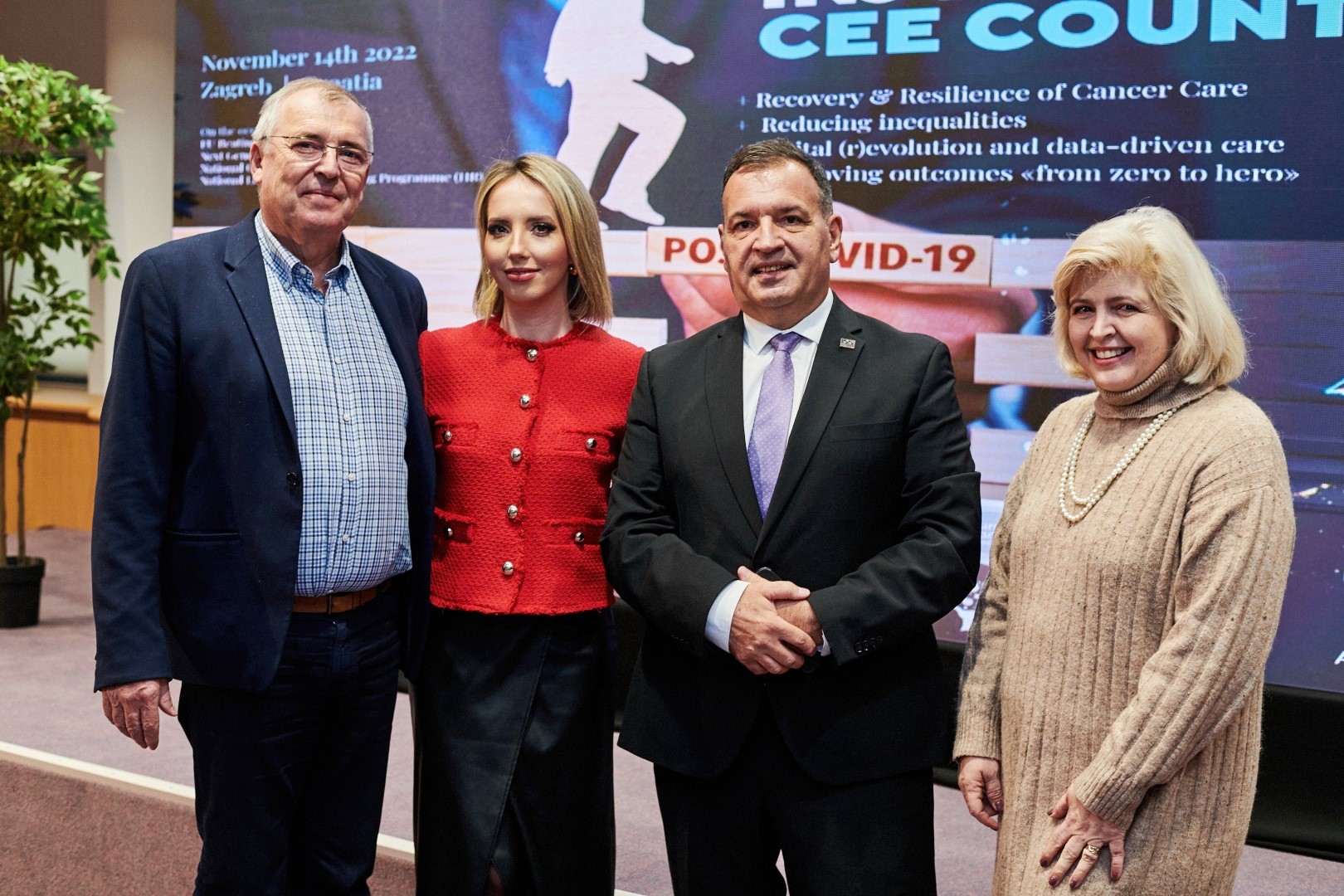
During this Forum, the need to exchange best practices between the EU countries was repeatedly highlighted, and in the spirit of the new EU guidelines for early detection of cancer, Croatia presented its National Program for Screening and Early Detection of Lung Cancer, which has been in place for two years and is a true inspiration to other EU Member States. “This is the first national program for screening and early detection of lung cancer (the biggest European “killer cancer”) in the European Union. So far, more than 10,000 images of high-risk people have been taken with low-dose CT, and malignant disease has been confirmed in 104 of them. What makes the Croatian National Program stand out is the complete digitization and implementation of artificial intelligence in reading CT images, and the leading role of general practitioners (GPss) in the screening, ordering and monitoring of Program participants. At the international conference “Screening for Lung Cancer” that took place in September of this year in New York (USA), the Croatian National program was highlighted as an example of a successful screening program not only in terms of design, but also in terms of results!”, said dr. Kristina Krpina. and dr. Ivana Kuhtić from the team of academician Miroslav Samaržija, who is the initiator of the Program with the support of the Croatian Ministry of Health.
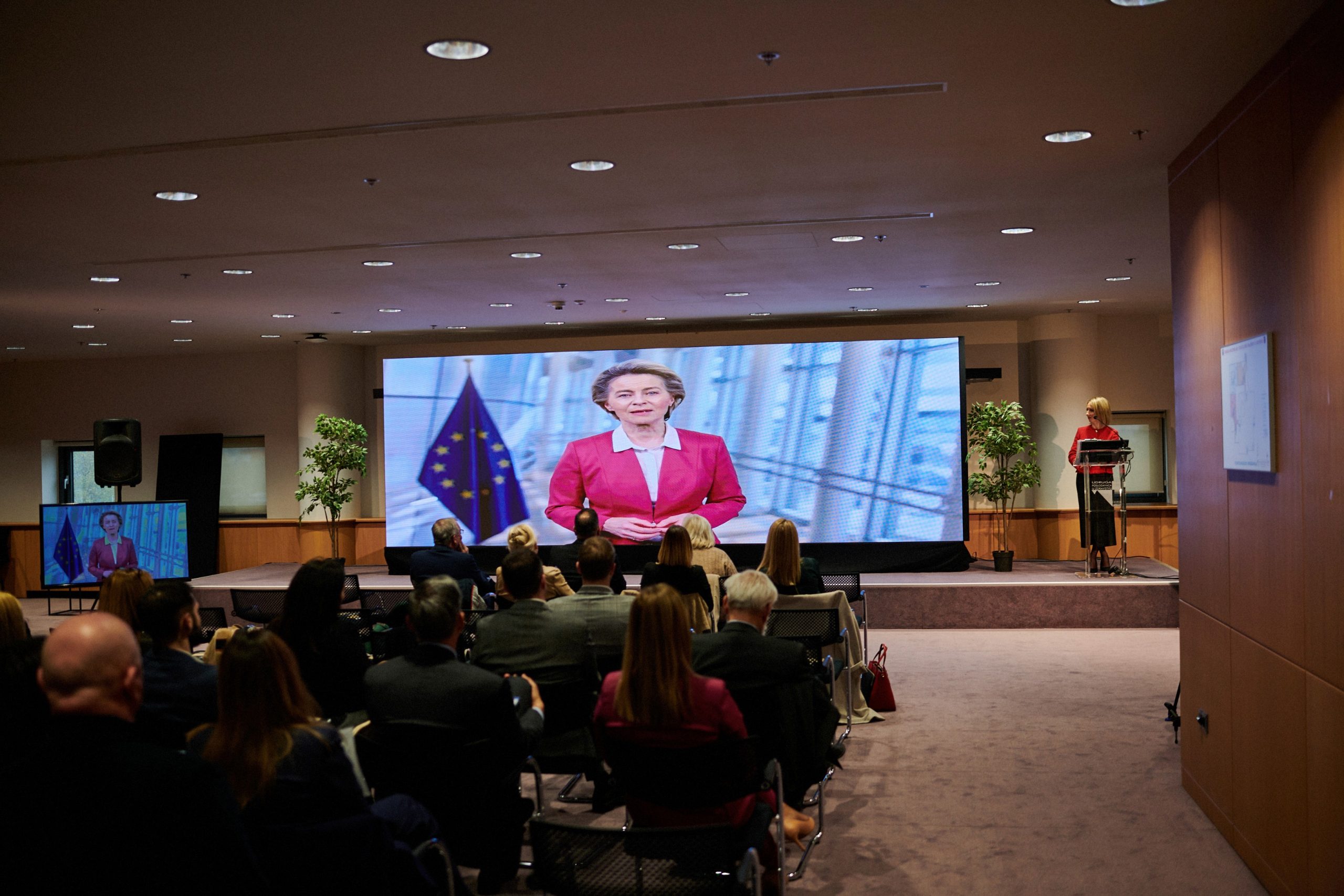
European Commission ‘s Vice President Dubravka Šuica commented on the Croatian lung cancer screening program on the occasion of this Forum: “The European Commission welcomes the Croatian initiative and innovative spirit. This exchange of best practices among member states will help fight cancer in the EU!”
At the same time, we must not forget about Croatia as an unrecognized „global cradle“ of health literacy, since the time of Andrija Štampar (one of the founders of WHO), as pointed out by prof. Mirjana Kujundžić Tiljak, director of the School of Public Health at the School of Medicine of the, University of Zagreb, emphasizing health education as an important factor in reducing inequality and improving outcomes.
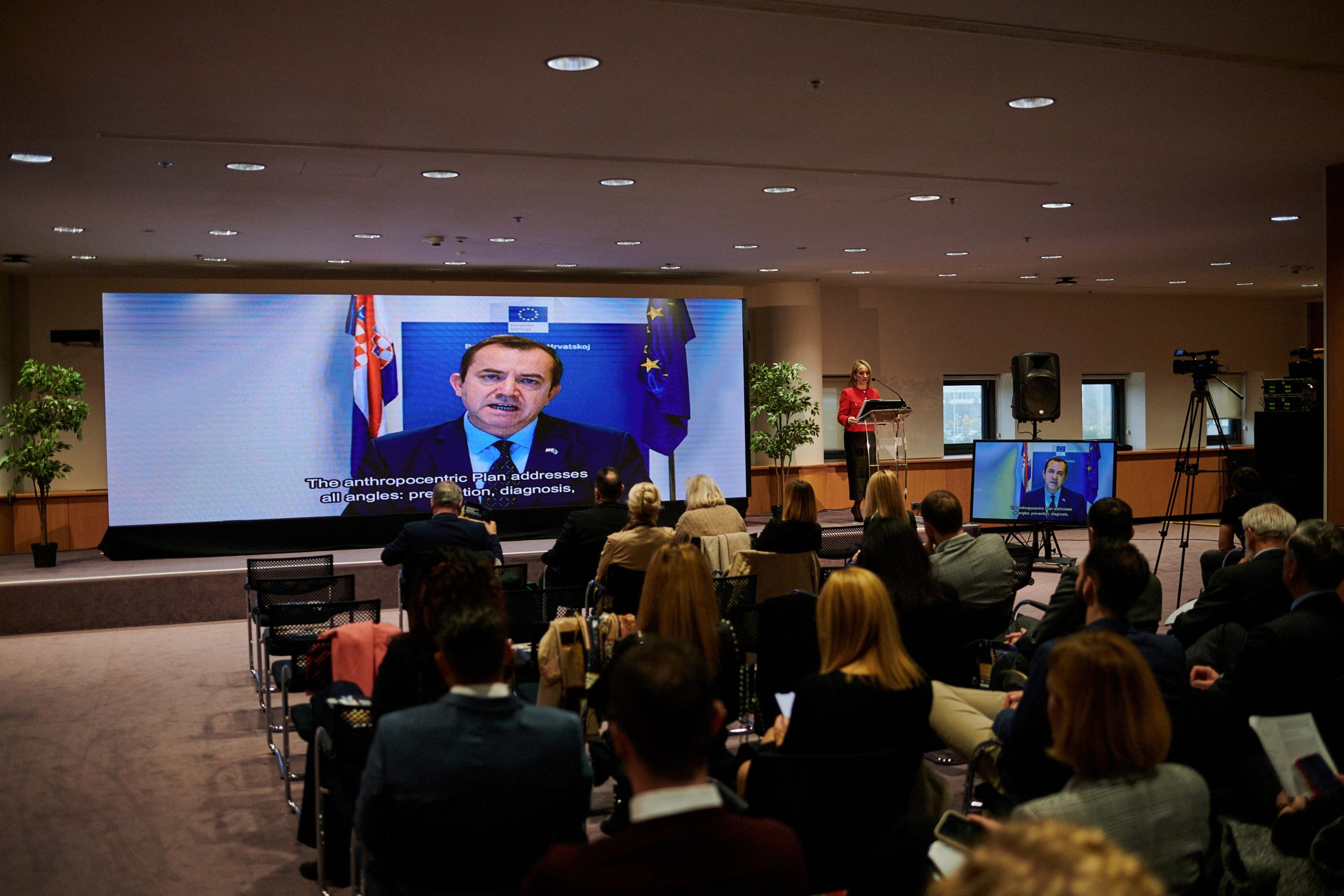
Member of European Parliament Assoc. Prof. Tomislav Sokol presented how to use the potential of European funds to reduce inequality in oncology care, and in addition to numerous experts and Forum participants: Ognian Zlatev (head of the European Commission’s Representation Office in Croatia), Director of the European Cancer Organization Mike Morrissey, Head of EU policy at the European Cancer Patient Coalition Adela Maghear, prof. Jeliazko Arabadjiev (Bulgaria) from the Mission Board for Cancer of Mission of the European Commission, Ivana Cattaneo (Chair of the EFPIA Oncology platform), Marius Geanta (Romania) from InoMed and the ReThink Health platform, leading Croatian clinicians prof. Stjepko Pleština, prof. Eduard Vrdoljak, prof. Marko Jakopović and Assoc. Prof. Fadi Almahariq, patient representative prof. Ivica Belina and experts in the field of data-intelligence in healthcare Igor Lerman, Damir Ivanković and Ana Sofia Carvalho frome HealthPros.
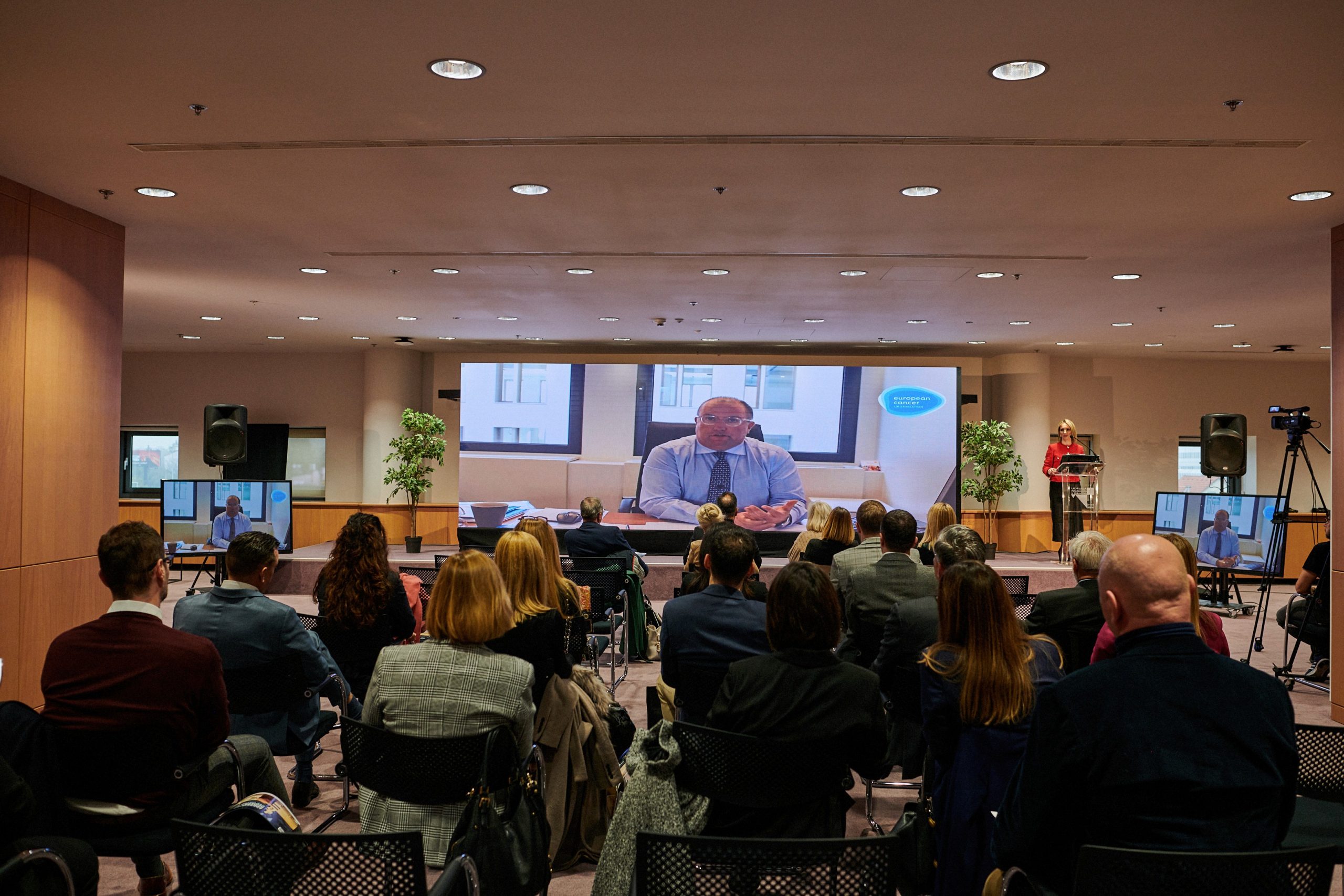
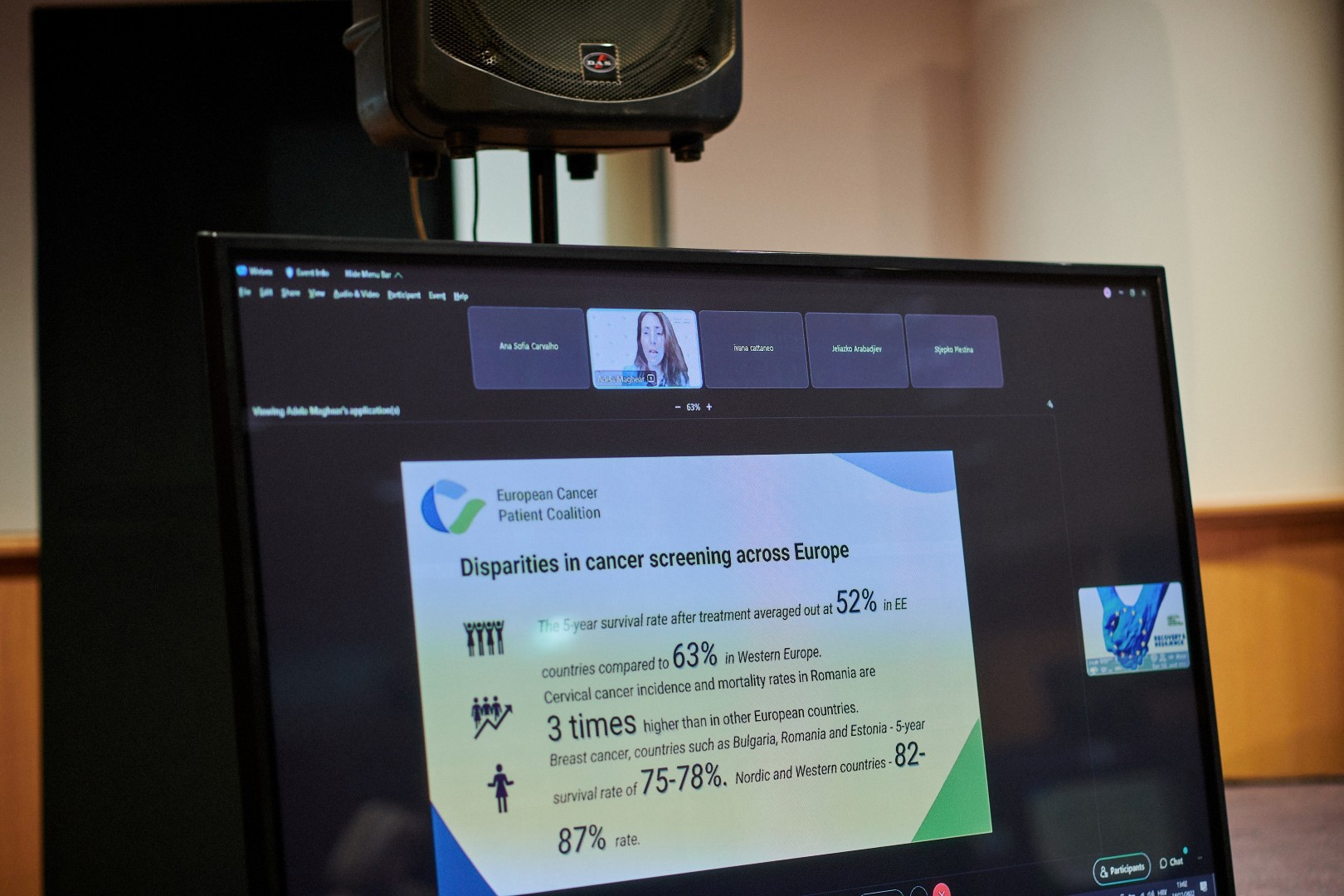
Minister Beroš concluded: “We are strengthening prevention, with reform measures and preventive health examinations we will fight against non-communicable chronic diseases, including cancer. And we are doing this aligned European union efforts, which recently presented the Healthier Together initiative to fight non-communicable chronic diseases, with already known EU Beating Cancer Plan. Today I want to send a strong message and a call to action to all those who can contribute to a healthier tomorrow – it is important to gather, not cause divisions; it is important to inspire and learn from the best so that we can all progress equally; it is important to use the potential of the European vision and the European family in order to have a healthier future for the EU; it is important to invest in health education in order to have citizens who respond to preventive examinations and timely save their lives; it is important to integrate digital solutions in the age of technological developments which use data in a smart way and in the interest of the best possible treatment outcomes; and it is important to present the problems that even the EU is facing (in terms of poor health statistics), but also to offer constructive solutions for them!”
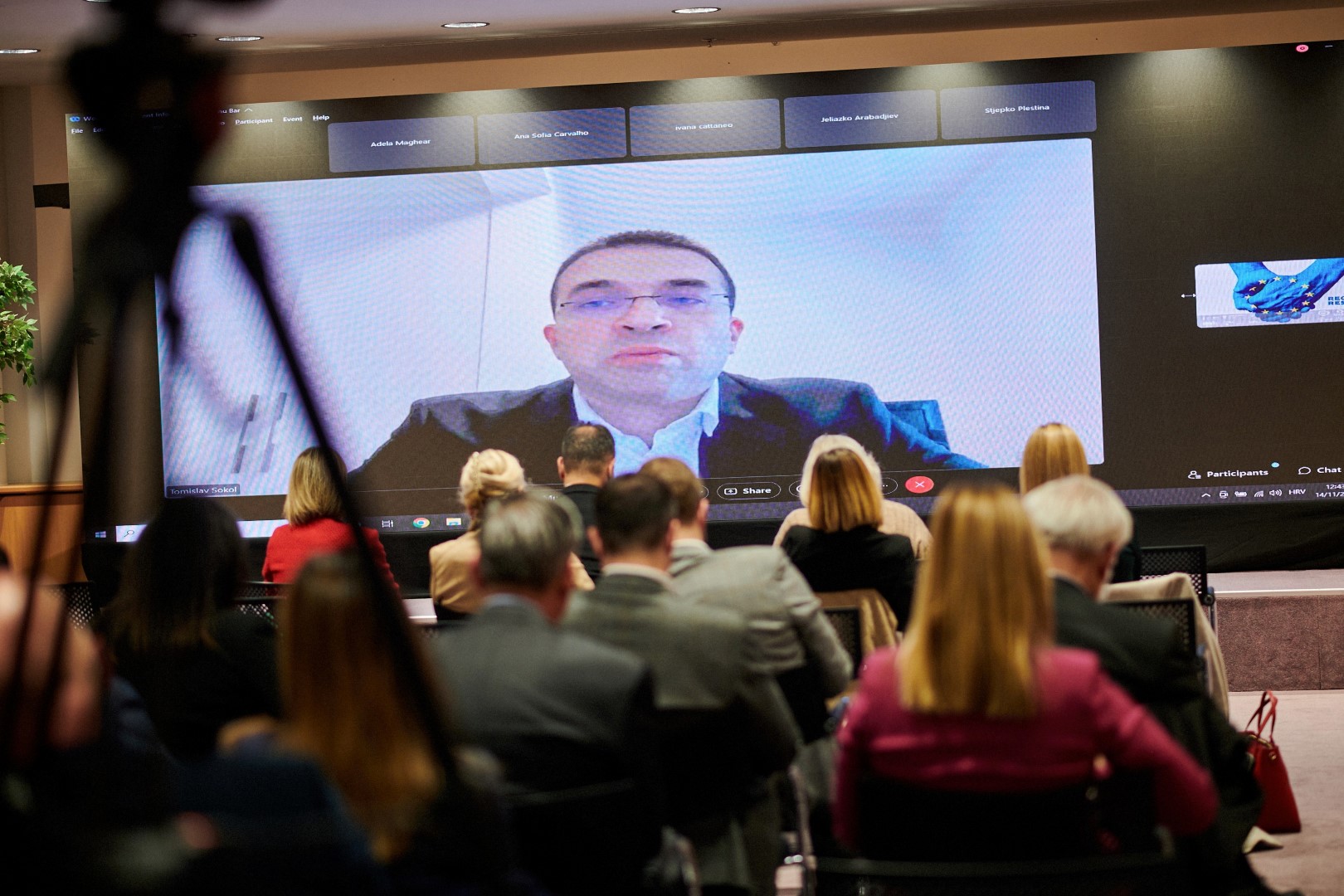
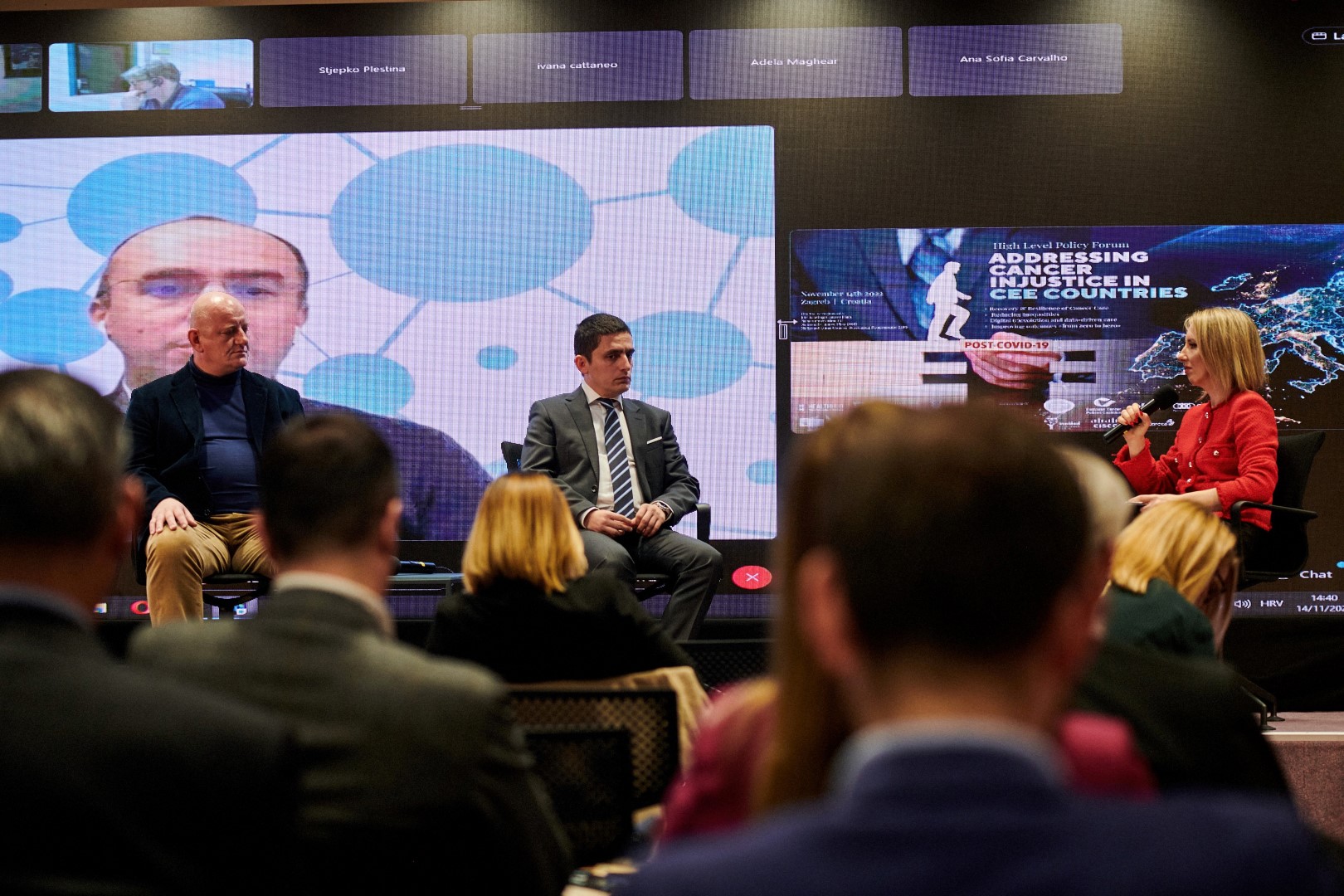
PHOTOGALLERY //
